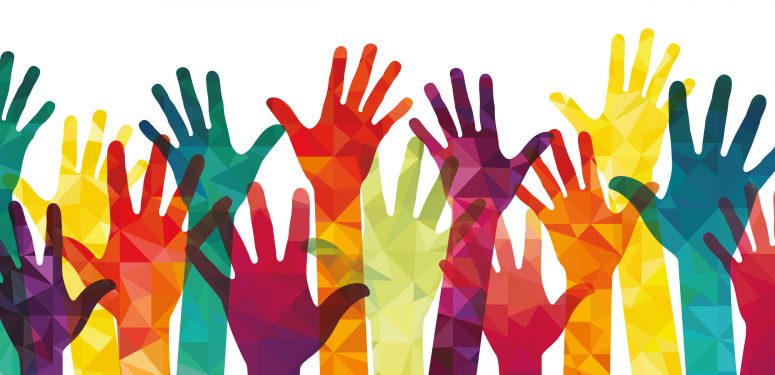
The following comes from my self-mastery newsletter, which you can subscribe to here.
Being honest with others is hard enough, especially when it involves any embarrassing, compromising, or (heaven forbid) incriminating information. If honesty really is the best policy—which all behavioral psychologists agree with—then we will spend a lifetime trying to master this crucial, trust-building, but difficult skill.
If that wasn’t hard enough, I’ve got some more uncomfortable news for you: being honest with yourself might be even harder. That’s because we often lie to ourselves for extended periods of time about the person we really are, so we don’t have to confront the parts of ourselves that we don’t like.
That explains why so many people delude themselves or live in denial. If we are close to perfection or blameless in our own mind’s eye, then we don’t have to change. We just need to wait for others in the world to change for us. This, of course, is a recipe for stagnation. Not to mention loneliness, depression, and remorse.
Heavy stuff, I know. But I have some good news. All of us can learn to be more honest with ourselves and others, even if we were raised around bad examples of both. Granted, doing this is a life-long endeavor, but we can all increase momentum and hasten our own awesomeness by practicing the following: Continue reading…

Courtesy Shutterstock
The following sample lesson come from my employee training curriculum, Power Space.
No one disputes the overwhelming evidence that volunteering does wonders for our self-worth and happiness. Giving, it seems, really is better than receiving when it comes to how we feel about ourselves and the greater world we live in.
But the power of service doesn’t just begin and end with our own improved happiness. In fact, when we feel better about ourselves, we are much more likely to contribute, collaborate, and ultimately work at maximum capacity, research shows.
This is due to several reasons: Continue reading…

Courtesy Shutterstock
This is a sample lesson from my new employee training company, Power Space.
Admitting that you’re stuck is a hard thing to do. Asking for help is even harder, especially for the more prideful souls among us, of which there is no shortage. On top of that, many of us refrain from asking for help because we think doing so is imposing or causes unwanted work for others.
Nothing could be further from the truth. While it’s true that asking for help sometimes creates more work for others, we do not get to decide what is unwelcome work for others. Predicting or telling ourselves that is an unhelpful projection. That may be true some of the time, but research shows that humans are usually willing to help. As social creatures, it’s in our DNA and has been for tens of thousands of years.
But to get the help we need, either personally or professionally, we must ask. We must speak up. No one else will do that for us and, in fact, it’s no one else’s job except ours alone. Waiting for someone else to ask on our behalf is not only unfair, it prolongs our frustration, delays fulfillment, and saps motivation. Continue reading…

Last year in the middle of pandemic, my life-long friend, Wesley Lovvorn (pictured left) approached me (pictured right) about co-founding a company. I had been working from home for nearly two decades. He’d done so for almost a decade. Both of us had been self-help students for over 30 years. “Let’s combine the two and help the millions of employees now working from home,” he said.
After studying the market for several months, we discovered two things: 1) there wasn’t a dedicated company that did this, and 2) we possessed some promising experience, empathy, and research to make it happen. So we spent the next half year interviewing executives, speaking to mentors, developing the initial curriculum, branding ourselves as Power Space, and launching with two pilot customers last fall.
Since I come from a background as an explanatory writer-for-hire, I was dubbed “chief content officer” and tasked with producing the first year curriculum of 18 lessons. I also produce all of our marketing assets, such as press releases, content marketing, and websites that our outreach director (Hi, Abby!) then uses to spread the gospel. Since this is still a side hustle, I do all this in between my day job writing articles for Fortune 500 companies and fancy publications. Continue reading…

NEWS FROM MY LATEST SIDE HUSTLE: Last year in the middle of pandemic, my life-long friend approached me about co-founding a company. I had been working from home for nearly two decades. He’d done so for almost a decade. Both of us had been self-help students for over 30 years. “Let’s combine the two and help the millions of employees now working from home,” he said.
After studying the market for several months, we discovered two things: 1) there wasn’t an existing company that did this, and 2) we possessed some promising experience, empathy, and research to make it happen. So we spent the next half year interviewing executives, developing the initial curriculum, getting our ducks in a row, and launching with two pilot customers last fall.
This year, we fully launched as Power Space and have been gaining momentum ever since. Here are three things we’ve learned so far.
- Employees are stuck in limbo. While many employees are thrilled to be working from home, a sizable majority are struggling, according to every major metric on employee health. Yes, these employees have adapted to this new reality and proven the productivity of working remotely, but they’re far from reaching their potential in this new isolated state while still figuring out the rules.
- Companies are scrambling to keep up. How do you transition from central headquarters to dispersed home offices overnight? You don’t. This takes time. While HR departments have been working hard to help with the transition, they come from a very different background and need assistance with the transition and ongoing training required to make the most of remote work environments.
- Aggressive pricing is required in recession. While we believe there’s significant value in the training we’ve created, we also believe that every remote employee and cash-strapped employer deserves an affordable training option. That’s why we’ve launched our training program starting at $1 per year per employee. That jumps to $3 per employee if we deliver the lessons for our customers (our most popular option), and $5 per employee if lesson personalizations are needed to fit your unique policies.
If you or someone you know is in HR and is struggling to help your employees transition to remote work (or in getting the most from this promising but isolating environment), I hope you’ll consider us when planning your employee training this year. Thanks for thinking of us.—Blake Snow





